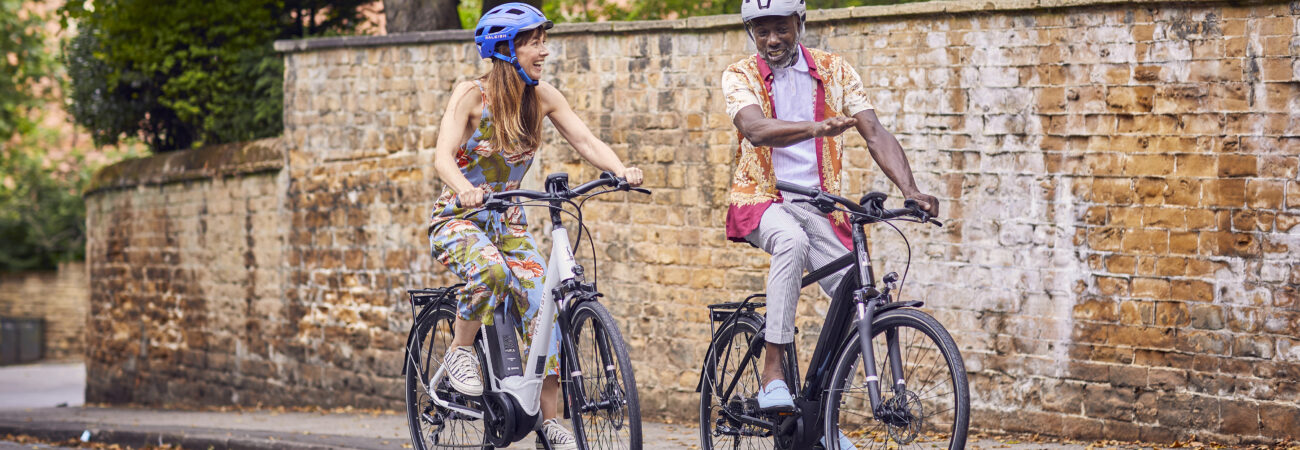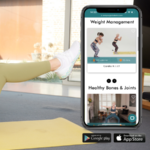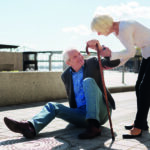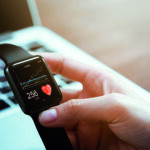Britain is seeing a noticeable rise in the number of cyclists, with all ages of Brits stating an interest in riding for leisure or fitness above all other purposes. Cycling is a low-impact form of exercise, and therefore is great for different abilities and fitness levels.
Looking after your body and mind
Did you know that Frank Bowden, the founder of bicycle brand Raleigh, initially took up cycling following a spell of bad health and a recommendation from his doctor? Frank was so impressed by the results, he bought a small bicycle company and turned it into – at one point – the largest bicycle manufacturer in the world. Could there be a better endorsement for cycling for your health?
Regular cycling can reduce your risk of heart disease, type 2 diabetes, and stroke. Not only that, but regular cycling can reduce your chances of catching the common cold, by improving your upper-respiratory system. Cycling is low-impact exercise, much kinder to your joints than running.
The benefits of cycling are extensive and extend beyond your physical health; the simple joy of getting on a bike is great for your mental health too. Your post-ride endorphins can help to alleviate symptoms of stress, anxiety, and depression. A recent UK report shows that the three leading methods for dealing with stress are: spending time outside, listening to music, and exercise.
Getting back on the saddle
If it’s been a little while since you’ve been out on your bike, or if you’re entirely new to two wheels, then getting on the saddle can be daunting. Here’s a few tips that should help to make it a little easier:
- Start slow but practice regularly
- Get started with short journeys, then build up to something more challenging
- Ride with a friend or join a local cycling group
Cycling is great as you can (just about) do it anywhere. You don’t need to go to a gym or a specific location, so as long as you have a road or cycle lane, you’re good to go. Make cycling part of your routine by switching your short car journeys for your bike – you’ll be surprised how much you want to spend more time cycling, and will find yourself well on your way to the recommended 150 minutes of exercise per week.
What about electric bikes?
14% of British cyclists own an e-bike, and this figure will continue to rise substantially in the coming years. Put simply, an e-bike will help you to go further, faster and/or for longer than you may be able to on a traditional bike. These pedal-assist cycles use a battery and motor to increase the power output from your pedalling.
E-bikes do make cycling more accessible for many. They are a great way to break down barriers to cycling for those who are recovering from injury, looking to improve their fitness or wanting to start their cycling journey. But even the fittest of us can benefit; It’s a common misconception that riding an e-bike means you’re not working your muscles, especially that most important muscle, your heart. In fact, an e-bike will mean you’re riding for longer and stopping less often, keeping your heart pumping.
Join the cycling revolution
Raleigh has been encouraging British people to experience the joy of cycling since 1887, a mission that remains to this day. Why not try it out and join an ever-growing population of British joyriders? Switch shorter car journeys for bike rides, and reap those benefits. Healthier heart, heavier wallet, greener planet, baggier clothes, clearer mind… the list goes on.














![BODi-NPA_UK-MPU_Hero-1300×450[14]](jpg/bodi-npa_uk-mpu_hero-1300x45014-1-150x150.jpg)






























































































![19150_Diageo NCP MPU Hero_1300x450px[94][42]](png/19150_diageo-ncp-mpu-hero_1300x450px9442-150x150.png)














